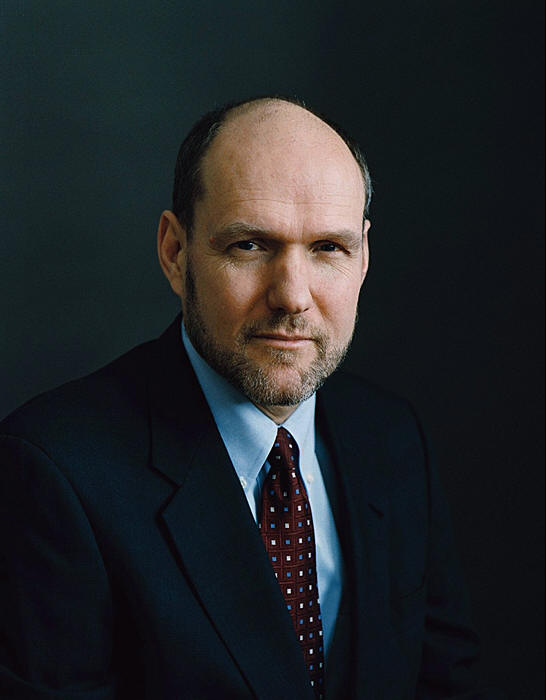Professor Stephen Walt on Israel, Japan, Mexico, and realism
Stephen M. Walt is the Robert and Rene Belfer Professsor of International Relations at Harvard University. He is also the co-author, with J.J. Mearsheimer, of The Israel Lobby.
HARVARD POLITICAL REVIEW: Your blog is subtitled “A Realist in an Ideological Age.” When you say realist, what do you mean?
STEPHEN WALT: I think that realists in general try to analyze the world as it really is and try not to be too wedded to a particular political program that follows from some normative vision about how the world ought to be. That doesn’t mean that realists don’t have moral preferences, a set of moral standards, but the central tenet of realism is that you start by looking at how humans actually behave in international politics. Realists try to make the world better, but bear in mind what’s likely to be feasible. Realists also tend to be fairly skeptical about ambitious plans to remake the human condition. You might even say that realists have a sort of “first, do no harm” approach to foreign policy.
HPR: Is realism a sort of balance between optimism and pessimism?
SW: Not necessarily. Realism is a pretty gloomy way of looking at world politics and realists tend to highlight the inevitability of security confrontations, the pervasiveness of insecurity, and the fact that countries sometimes do really brutal things to one another. In a sense, realism is a sobering way of looking at the world. At the same time, I think realists recognize that there are certain circumstances that are better than others and that prudent statecraft can avoid some of the really big disasters. Even a realist would concede that the last twenty years of world politics have been more peaceful than the previous eighty years.
HPR: How does realism function as a lens on the situation in Israel and Palestine?
SW: You can’t understand the Middle East, either American Middle East policy or the nature of the conflicts occurring in the region, solely by applying realism, although I think realism does tell you certain things about why the conflict has not been resolved. I think that the combination of Israeli preference for land instead of peace, the dysfunctional relations within the Palestinian community, and the fecklessness of American policy are combining to make a two-state solution increasingly unlikely. However, I do think that when people are faced with a really unpleasant future, they can sometimes find the goodwill and imagination to go in a different direction. But right now, I don’t see a lot of wisdom in any of the three parties, and particularly in the American and Israeli sides.
HPR: The Onion.com recently featured an article titled “Massive earthquake reveals entire civilization of Haiti.” Indeed, Yemen and Haiti are two countries that had been largely forgotten by the developed world. Can you think of another country that has been similarly overlooked?
I think one of the things to remember about foreign affairs is there are 192 countries out there and no matter how well an administration plans its strategy and sense of priorities, there are always surprises. They always end up having to deal with something they didn’t expect, sometimes as with Haiti because of a natural disaster, sometimes it’s because of a conflict, or a government that collapses unexpectedly. It’s almost impossible for anyone to fully anticipate where some complete surprise is going to come from.
That said, I think there are some parts of the world where it’s easy for me to imagine us suddenly being forced to pay more attention than we have been up until now. I’ll give you two. One is Japan. The recent governmental change has clearly altered, to some degree, the relationship between Washington and Tokyo. I think some of that may have been overblown. There are many reasons the two will remain on good terms. But given that there is a somewhat different set of ideas and attitudes from the government in Japan, and given that you have an American administration that is up to its neck in all sorts of other problems, it’s possible to imagine the stakes being made in both places that put things in a much more delicate situation that we’ve been in a while.
The second one is Mexico. Without saying that this is going to happen or even likely to happen, you can imagine some of the internal problems that Mexico is having spilling over in the United States more than they already have. Now, it’s one thing to have a failed state in Somalia, which generates piracy problems and other issues, but is on the other side of the world, and so most Americans don’t worry very much about it. Ditto Yemen. But it seems to me, if we saw Mexico becoming ungovernable, or parts of Mexico becoming ungovernable, that would start to have repercussions that are a little different than what we’ve worried about in the past.
Those are two, but I’m not putting a bet down on either one.
Felix De Rosen ’13 is a Contributing Writer.
Photo Credit: Justin Ide Harvard Staff Photographer
